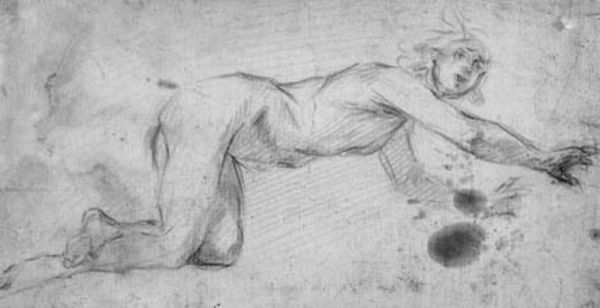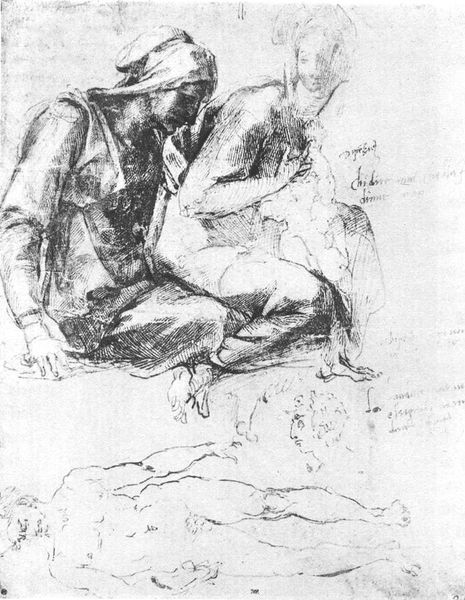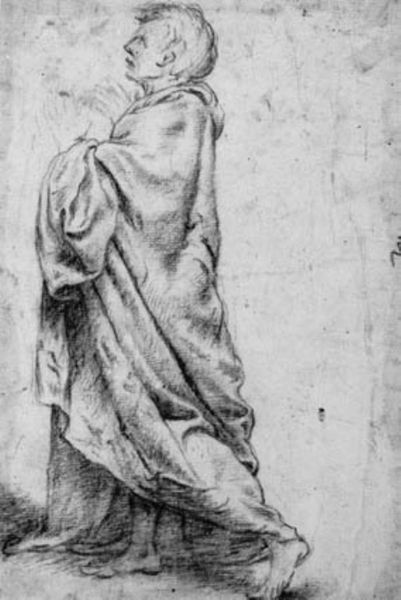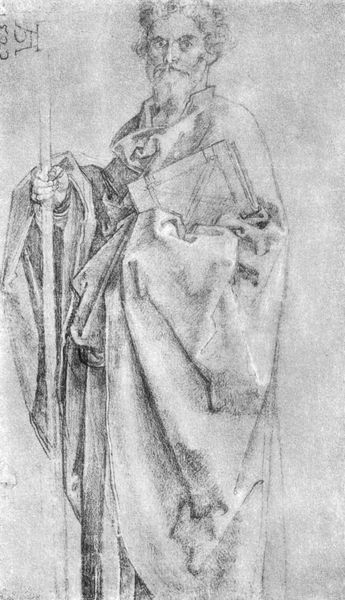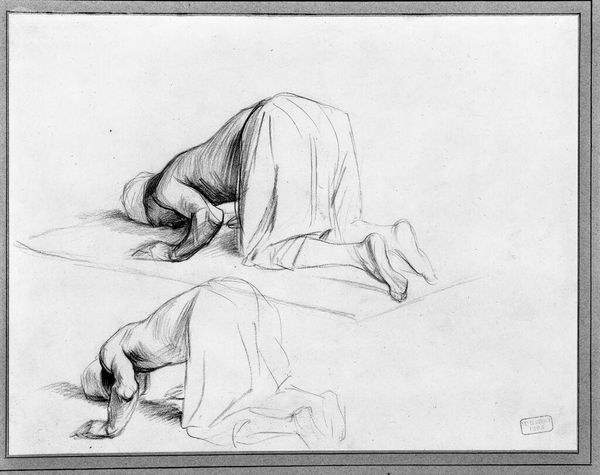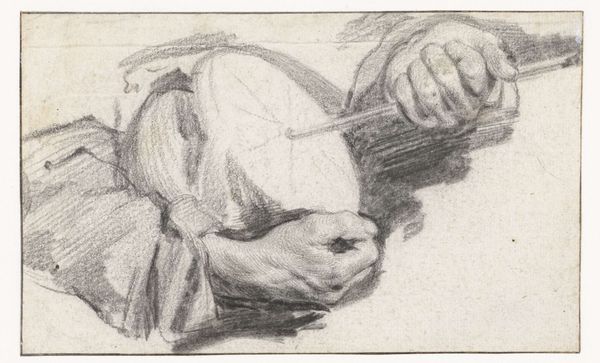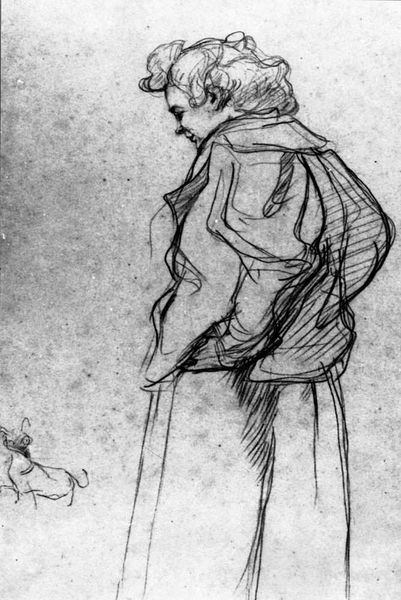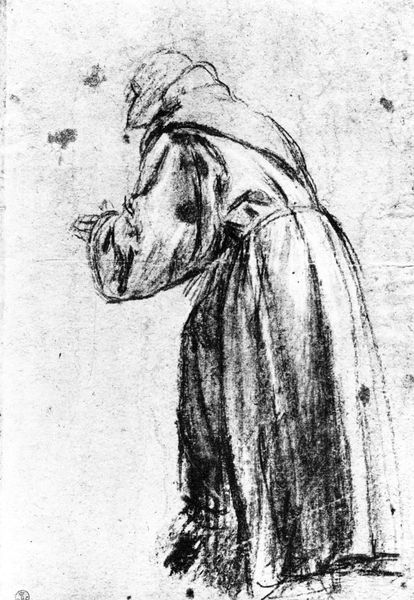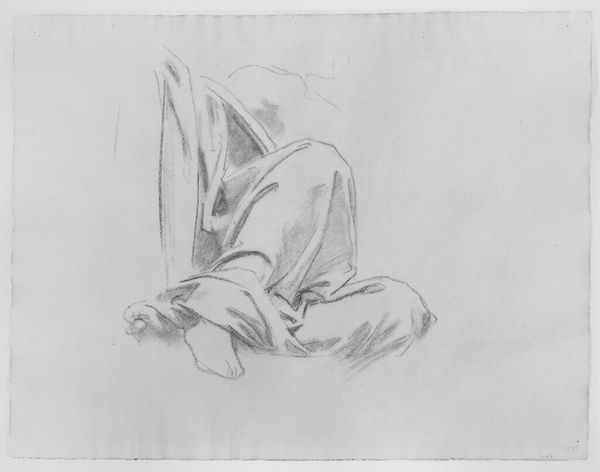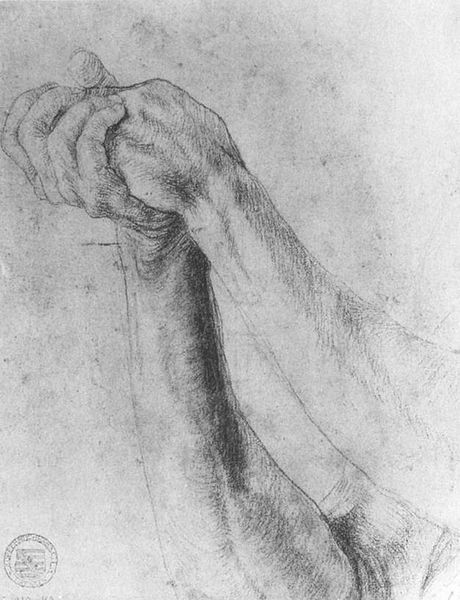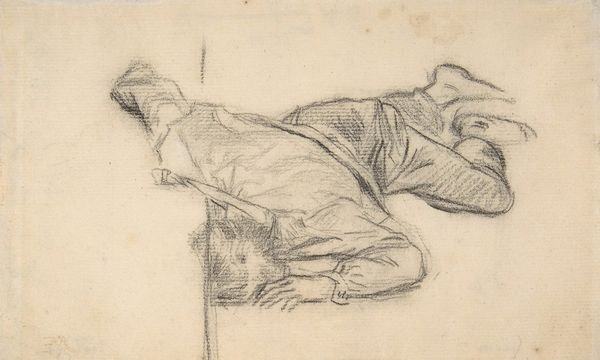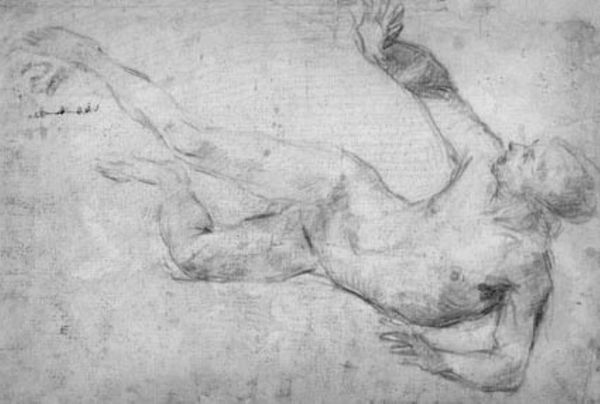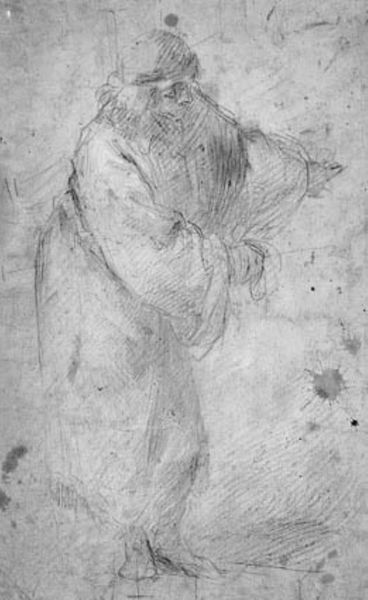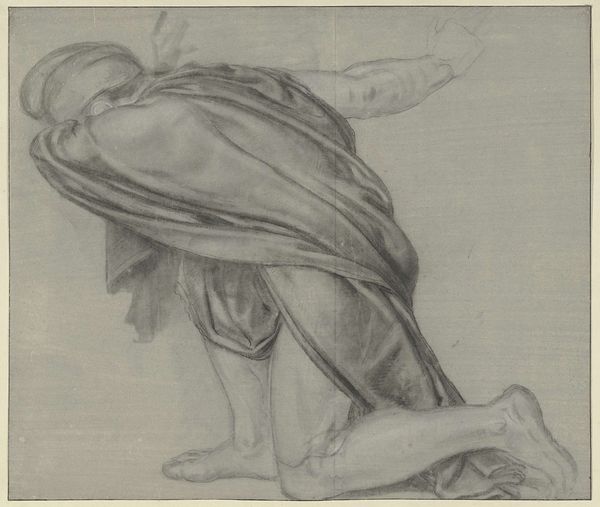
drawing, textile, paper, pencil, charcoal
#
pencil drawn
#
drawing
#
textile
#
charcoal drawing
#
paper
#
form
#
11_renaissance
#
pencil drawing
#
pencil
#
charcoal
#
academic-art
Dimensions: 131 x 182 cm
Copyright: Public domain
Editor: We're looking at Matthias Grünewald’s “Drapery Study” from around 1512, rendered in charcoal and pencil on paper. I’m really struck by the texture; you can almost feel the weight of the fabric, despite it just being lines on paper. What do you make of it? Curator: What fascinates me is the overt display of skill and labor involved in creating the illusion of textile. This isn't just about depicting a beautiful fold, it’s a study, an exercise, revealing the artist's deep engagement with material reality and their ambition to master it. Editor: So you're saying it's less about the final image and more about the act of creating it? Curator: Precisely! Consider the economics of artistic training at this time. Such a drawing was integral to an apprentice's development within a guild system, focusing on technical proficiency, like the control of line and shading to mimic specific textures. The production of these studies also highlights the art market, in which there was value for collecting sketches that demonstrated proficiency. Editor: It sounds almost industrial, doesn't it? Like Grünewald is perfecting a process. Does that downplay its artistic value at all? Curator: On the contrary! It broadens our understanding of "art." Grünewald elevates what might be dismissed as mere craft to an object of artistic interest and inquiry, interrogating our preconceived ideas about what art should or could be. What have you observed about this focus on skill from a contemporary perspective? Editor: I guess I was so focused on the realism that I missed seeing it as a commentary on production. Thanks, that gives me a lot to think about. Curator: It is really satisfying to consider art’s grounding in everyday labor and resources.
Comments
No comments
Be the first to comment and join the conversation on the ultimate creative platform.
